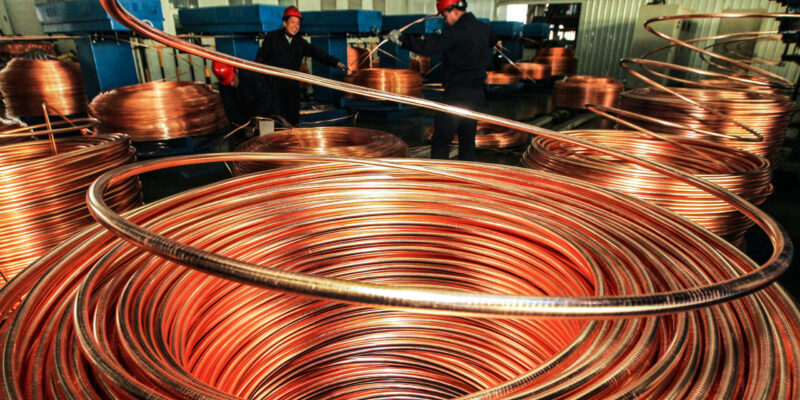Can Congo Become the World’s Top Producer of Copper Again?
Robert Friedland, founder and chairman of Canada-based mining firm Ivanhoe Mines, wants to make the Democratic Republic of Congo, or DRC, the biggest producer of copper in the world in connection with the rising demand from the electric vehicle industry and other sectors. (Chile is currently the biggest copper producer in the world).
Copper production in the DRC rose by 17% year-on-year to 1.433 million tons in 2019.
Friedland said his company is building “three of the best mines in the world” through its Kamoa-Kakula copper project in the DRC, and added that it is looking for its next large copper mine in the country.
By 2027, he estimated, demand for copper will surge by 900%.
“The whole electrical system is massively copper intensive,” he said. “All electric cars now use four times more copper than conventional gasoline-powered autos.”
Friedland also cited the emergence of electric buses in London and the more than 100 different electric aircraft programs across the world.
Copper will also be needed in wind and solar energy projects as well as by the air conditioning industry.
Friedland noted that China currently purchases about half the copper in the world.
“If China’s stomach is not full, the price goes up and everyone pays a higher price,” he said.
DRC, he asserted, is poised to benefit from this immense demand for copper.
The copper mines in DRC would be environmentally friendly, Friedland added, citing that the Mwadingusha hydropower plant would provide clean, sustainable electricity for the Kamoa-Kakula project as well as its Kipushi mines, also in DRC.
“Copper is the king of green metals if you want to clean the air,” said Friedland.
Ivanhoe expects the Kamoa-Kakula mine to commence production in the third quarter of 2021.
The Kamoa-Kakula project is a joint venture between Ivanhoe (39.6%), Zijin Mining Group of China (39.6%), Crystal River Global Ltd. of DRC (0.8%) and the DRC government (20%).
The Kamoa-Kakula deposit is estimated to contain 1.34 billion indicated tons grading 2.72% copper for 80.7 billion pounds of copper, as well as 315 million inferred tons at 1.87% copper for 13 billion pounds of copper.
Friedland said the Kamoa-Kakula mine could produce up to 700,000 tons of copper if fully developed – the equivalent of nearly 6% of China’s annual demand.
The property is valued at $10 billion at least.
Friedland has joined with Chinese partners, some of whom already own rich deposits of copper and cobalt in DRC. Western mining firms reportedly were fearful of investing in DRC, one of the poorest, most corrupt places on earth. DRC is also plagued by diseases and is still recovering from a brutal civil war that killed more than 5 million people.
But China was not scared off.
“The Chinese are more than willing to be strategic buyers of these assets,” says Norman MacDonald, a Canadian fund manager at Invesco. “The copper market is on sale and they consume half of it. If you are going to Selfridges [department store], and it’s 50% off, [because investors are avoiding the DRC] you are going to buy it.”
However, the coronavirus crisis in China, the world’s top consumer of copper, has thrown the markets into deep turmoil and uncertainty.
The price of copper has dropped about 7% year-to-date, although the metal’s price rose 2.2% on Monday in New York trading to close at $2.595 a pound.
Chile’s Mining Minister Baldo Prokurica said copper prices “should stabilize once the coronavirus passes.”
“Nobody has [enough] information to say that the coronavirus will last one or two or three months, but [severe acute respiratory syndrome] and the like lasted between two and three months, so we think that is what will happen with the coronavirus,” he said.
Prokurica added: “I have the impression that the price should be between $3 [per pound] and something more.”
Over one-quarter of the world’s copper supply is mined in Chile.
Source: International business news





